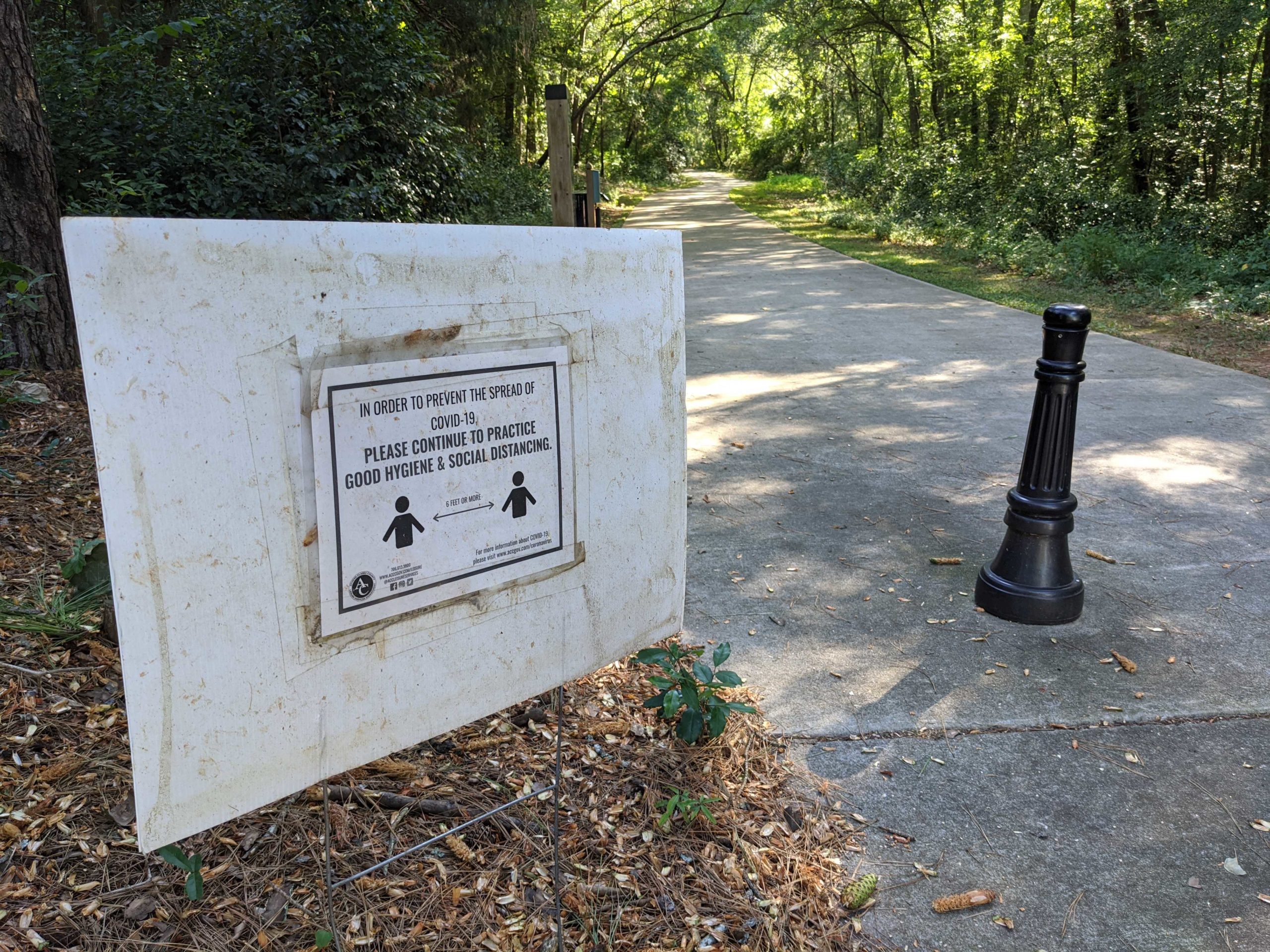Mandatory social distancing policies can rapidly slow the spread of COVID-19, according to a new case study by two University of Georgia researchers.
The study, which was published recently in the American Journal of Preventive Medicine, supports the growing body of evidence that these types of mandatory policies are effective tools in stemming COVID-19 infections.
Athens-Clarke County was one of the first counties in Georgia to adopt a mandatory shelter in place order in late March. Only one of the counties surrounding Athens-Clarke adopted similar measures, and Georgia did not issue a statewide shelter in place policy until early April.
Athens’ early adoption of mandatory social distancing provided a natural experiment to compare the impact of the policy on COVID-19 case rates, said co-author Mark Ebell, a professor of epidemiology and biostatistics at UGA’s College of Public Health.
“Because Athens-Clarke County got ahead of the rest of the state by about 2 weeks, we wanted to see if that early implementation paid off,” said Ebell.
Using data from the Georgia Department of Public Health, the researchers compared COVID-19 cases reported between March 19 and April 27 in Athens-Clarke County and the six surrounding counties.
Over the period of the study, they found that Athens-Clarke saw a faster and larger increase in doubling time after the shelter in place policy went into effect.
The doubling time refers to how many days it takes for the number of COVID-19 cases to double. A larger doubling time means that infections are spreading more slowly, said Ebell.
Doubling times have traditionally been what health officials look to when they want to know whether an epidemic is slowing or speeding up.“The main takeaway from a policy perspective is the support we find for the hypothesis that local policy efforts matter in terms of curbing the pandemic,” said co-author Grace Bagwell Adams, associate professor of health policy and management at the College of Public Health.
“Across the country, many states left it up to local jurisdictions to implement policies such as the shelter-in-place policies we study in this paper, and these findings suggest that local ordinances show statistically significant effects on decreasing the growth in cases,” she said.
Adams emphasizes that this type of local-level analysis can and should extend to local policies like mask ordinances in future study.
The study, “Mandatory social distancing associated with increased doubling time: An example using hyperlocal data,” is available online here.
– Lauren Baggett
Read the story at UGA Today.
Posted on July 28, 2020.







